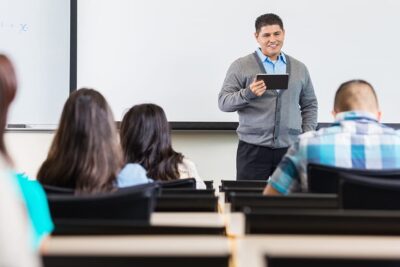Children are facing potentially permanent learning loss. But additional instructional time alone won’t help.
December 19, 2023, By Chrysanthi Violaris, Analyst, Product Marketing
Amidst the pandemic fallout, public schools are wrestling with the serious problem of learning loss. In fact, studies show that the average student is lagging by about six months in math and four months in reading. There are many strategies district leaders have used to combat learning loss that focus on building more instructional time, like extending the school year and encouraging summer prep classes. But even with this extra time, it can take students up to two years to catch up on grade-level expectations.
What district leaders need to focus on now is the quality and efficacy of that instruction. Research consistently suggests that highly effective teachers and coursework lead to better learning outcomes, increased learning retention, and more motivated students. Existing insights from the science of reading offer practical strategies to help district leaders get their students back on track, regardless of the subject.
Utilize science of reading (and learning) to enhance teacher efficacy
Most reading instruction fails to align with science, which leads to underdeveloped decoding skills in students. With science-of-reading aligned pedagogy, educators are armed with evidence-based insights into how individuals learn to read, employing effective teaching strategies tailored to student needs. These methods incorporate cognitive processes that help teachers identify and address early reading challenges. Similarly, approaching teaching generally as science builds strong foundations in all subject fields for students. For example, science-based feedback strategies, like focusing on 2-3 critical skills, reduce student anxiety and improve feedback efficiency. Using these strategies, educators fine-tune their methods to suit individual learning styles and foster a comprehensive understanding of various subjects.
School leaders need to develop a district-wide knowledge of the science of reading and learning. Knowing how the human brain learns provides a blueprint for administrators to enhance teacher efficacy. District leaders can begin to scale these science-based practices by focusing professional development opportunities on the science of learning and its practical implications.
10 brain-based instruction tips every educator should use
Redesign small group instruction to target student skill deficits
Grouping students by foundational skill needs and pairing them with teachers who demonstrate expertise in teaching skills most relevant to those students will help learning recovery. Currently, teachers often group students using imprecise universal screeners or Curriculum Based Measurements (CBMs). These tactics group students with similar benchmark scores, even though scores do not provide insight into the exact nature of students’ learning needs.
Districts should invest in diagnostics to group students based on data-informed skill needs instead of general levels. Then, districts can match student groups by skill need to the teachers with corresponding expertise. This schoolwide, customized support ensures students receive more specialized help for their needs while acknowledging teacher abilities.
Skills-based grouping refocuses intensive instruction
Diagnostics provide deep data needed to group and monitor student skills
-
Assess
students using screener diagnostics
-
Organize
student groups by skills
-
Match
intervention to skill need
-
Monitor
progress skill using diagnostic
Tackling learning loss demands a proactive approach that prioritizes evidence-based strategies and teacher efficacy. Science-of-reading aligned learning provides a solid foundation for districts to build effective instructional methods to ensure students’ academic needs are met. To learn more about how EAB can help you combat learning loss, read our expert brief on strategies to expedite learning recovery.

More Blogs

3 strategies to enable secure and productive learning online

3 ways to help teachers and students get the most out of online learning
